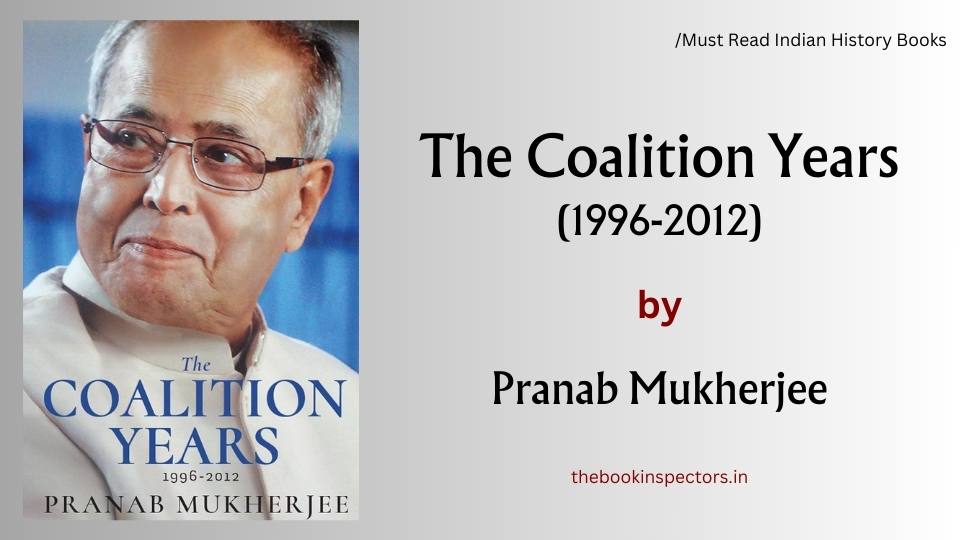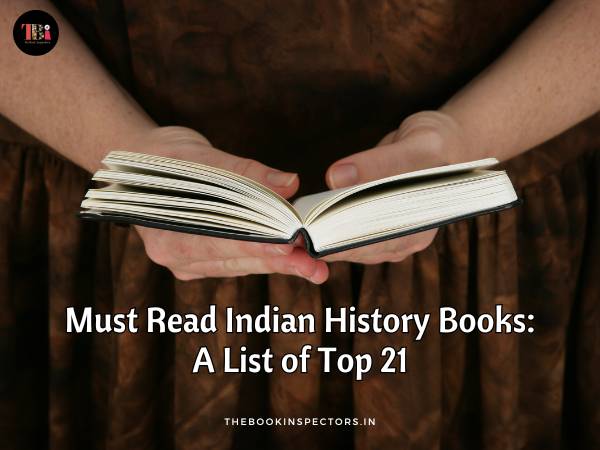India’s history is a tapestry of rich cultures, grand empires, and significant milestones that have shaped not just the subcontinent but also the world. From ancient civilizations and medieval kingdoms to colonial rule and modern democracy, India’s past is a fascinating journey through time. For readers and writers eager to delve into this expansive history, books offer an invaluable window into the lives, events, and ideas that define India. This article presents a curated list of books that provide profound insights into different eras and aspects of Indian history.
Ancient Indian History Books
The Discovery of India by Jawaharlal Nehru

Jawaharlal Nehru, India’s first Prime Minister, wrote this book during his imprisonment in 1942-1946. “The Discovery of India” is not just a historical account but also a personal exploration of India’s cultural and philosophical heritage. Nehru’s narrative spans from the ancient Indus Valley Civilization to the British Raj, reflecting on the enduring values and ideas that have shaped Indian society.
Key Highlights:
- Insight into India’s ancient civilizations and their contributions to art, science, and philosophy
- Personal reflections of a key figure in India’s struggle for independence
India: A History by John Keay

John Keay’s “India: A History” is a comprehensive chronicle that spans over 5,000 years. This meticulously researched book covers the subcontinent’s history from prehistoric times to the modern era, highlighting the evolution of Indian society, culture, and politics.
Key Highlights:
- Detailed exploration of India’s historical timelines and significant events
- An accessible narrative that makes complex historical developments understandable
“India’s Ancient Past” by R.S. Sharma

R.S. Sharma’s “India’s Ancient Past” provides a detailed account of India’s ancient period, focusing on its social, economic, and cultural aspects. Sharma’s work is well-regarded for its scholarly depth and accessibility.
Key Highlights:
- Thorough analysis of the social and economic structures of ancient India
- Insight into the cultural and philosophical developments of early Indian societies
Indian History Books on Medieval India
“The Wonder That Was India” by A.L. Basham

A.L. Basham’s classic work, “The Wonder That Was India,” delves into India’s history from the earliest times to the eve of the Islamic invasions. It covers various aspects of ancient Indian society, including religion, culture, and administration, providing a holistic view of India’s ancient grandeur.
Key Highlights:
- Comprehensive analysis of India’s ancient history and culture
- Emphasis on the contributions of ancient Indian civilizations to world heritage
“Medieval India: From Sultanat to the Mughals” by Satish Chandra

Satish Chandra’s two-volume work offers an in-depth look at India’s medieval period, focusing on the Delhi Sultanate and the Mughal Empire. The book discusses the political, social, and economic changes that occurred during this transformative era in Indian history.
Key Highlights:
- Detailed examination of the rise and fall of empires
- Insight into the cultural and economic developments of medieval India
“The Lost Kingdoms: Hindu-Buddhist Sculpture of Early Southeast Asia” by John Guy

While not exclusively about India, John Guy’s “The Lost Kingdoms” explores the cultural and historical connections between India and Southeast Asia through the lens of early Hindu-Buddhist sculpture. This book highlights the spread of Indian cultural and religious influences across Asia.
Key Highlights:
- Exploration of India’s cultural impact on Southeast Asia
- Detailed analysis of early Hindu-Buddhist art and sculpture
Books about Colonial India
“The Argumentative Indian” by Amartya Sen

Amartya Sen’s “The Argumentative Indian” is a collection of essays that explores India’s history and identity through the lens of its argumentative tradition. Sen, a Nobel laureate in Economics, delves into India’s intellectual heritage, emphasizing the importance of debate and dialogue in shaping the country’s past and present.
Key Highlights:
- Exploration of India’s intellectual and cultural history
- Discussion of India’s secular traditions and their relevance today
“Inglorious Empire: What the British Did to India” by Shashi Tharoor

Shashi Tharoor’s “Inglorious Empire” provides a scathing critique of British colonial rule in India. Tharoor meticulously documents the economic exploitation and cultural destruction wrought by the British, challenging the often glorified narrative of the Empire’s contributions to India.
Key Highlights:
- Critical analysis of the impact of British rule on India’s economy and society
- Refutation of common myths about the benefits of colonialism
“Midnight’s Borders: A People’s History of Modern India” by Suchitra Vijayan

Suchitra Vijayan’s “Midnight’s Borders” offers a unique perspective on India’s modern history through the lens of its borders. Vijayan travels along India’s frontiers, documenting the lives and struggles of people living in these marginal areas, shedding light on the human impact of political boundaries.
Key Highlights:
- Exploration of the human stories behind India’s borders
- Insight into the socio-political dynamics of India’s frontier regions
Books on Modern India
“India After Gandhi: The History of the World’s Largest Democracy” by Ramachandra Guha

Ramachandra Guha’s “India After Gandhi” is a must-read when talking about Indian history books. It is a monumental work that covers the history of India from its independence in 1947 to the early 21st century. Guha’s narrative highlights the political, social, and economic challenges faced by the young nation and its remarkable journey as a democracy.
Key Highlights:
- Comprehensive overview of post-independence India
- Insight into the challenges and achievements of modern India
“The Idea of India” by Sunil Khilnani

Sunil Khilnani’s “The Idea of India” explores the ideological foundations of modern India. The book examines how India’s leaders, including Mahatma Gandhi and Jawaharlal Nehru, envisioned a secular, democratic, and pluralistic society, and how these ideas have shaped contemporary India.
Key Highlights:
- Exploration of the ideological underpinnings of modern India
- Analysis of the successes and shortcomings of India’s democratic experiment
“The Coalition Years: 1996-2012” by Pranab Mukherjee

Pranab Mukherjee’s memoir, “The Coalition Years,” provides an insider’s account of Indian politics during a crucial period. As a senior leader in the Indian National Congress, Mukherjee offers unique insights into the complexities of coalition politics and governance in modern India.
Key Highlights:
- Firsthand account of India’s political landscape during the coalition era
- Insight into the challenges of coalition governance
Biographies and Autobiographies on Indian History
“An Autobiography” by Jawaharlal Nehru

Jawaharlal Nehru’s autobiography provides a personal account of his life, his role in India’s struggle for independence, and his vision for the nation. Written with eloquence and introspection, Nehru’s narrative offers a unique perspective on India’s modern history.
Key Highlights:
- Personal insights from a key figure in India’s independence movement
- Reflections on the challenges of nation-building
“The Story of My Experiments with Truth” by Mahatma Gandhi

Mahatma Gandhi’s autobiography, “My Experiments with Truth,” is a seminal work that offers an intimate look at the life and philosophy of the Father of the Nation. Gandhi’s account of his experiments with truth and non-violence provides deep insights into his personal and political journey.
Key Highlights:
- Insight into Gandhi’s philosophy and its impact on India’s independence movement
- Personal reflections on the principles of non-violence and truth
“The Accidental Prime Minister: The Making and Unmaking of Manmohan Singh” by Sanjaya Baru

Sanjaya Baru’s “The Accidental Prime Minister” provides an insider’s view of Manmohan Singh’s tenure as Prime Minister of India. The book offers a detailed account of the challenges and triumphs of Singh’s leadership, highlighting the complexities of Indian politics.
Key Highlights:
- Insider’s perspective on the functioning of the Indian government
- Analysis of Manmohan Singh’s contributions and challenges as Prime Minister
Regional Indian History Books
“A History of South India” by K.A. Nilakanta Sastri

K.A. Nilakanta Sastri’s work is a comprehensive account of South Indian history, covering the region’s political, cultural, and economic developments from ancient times to the colonial period. This book is a valuable resource for understanding the distinct history of South India.
Key Highlights:
- Detailed exploration of South India’s dynasties and cultural heritage
- Emphasis on regional diversity within India’s broader history
“The Last Mughal: The Fall of a Dynasty, Delhi 1857” by William Dalrymple

William Dalrymple’s “The Last Mughal” chronicles the decline of the Mughal Empire during the Indian Rebellion of 1857. The book provides a vivid portrayal of Delhi during this tumultuous period, focusing on the last Mughal emperor, Bahadur Shah Zafar.
Key Highlights:
- In-depth account of the 1857 rebellion and its impact on Delhi
- Vivid portrayal of the last days of the Mughal Empire
“Rivers Remember: The Shocking Truth of a Man-Made Flood” by Krupa Ge

Krupa Ge’s “Rivers Remember” explores the devastating floods in Chennai in 2015, providing a poignant account of the human and environmental costs of urban mismanagement and climate change. This book offers a regional perspective on modern India’s challenges.
Key Highlights:
- Examination of the causes and impacts of the 2015 Chennai floods
- Insight into urban planning and environmental issues in contemporary India
Historical Fiction Books about India
“Train to Pakistan” by Khushwant Singh

Khushwant Singh’s “Train to Pakistan” is a poignant novel set during the Partition of India in 1947. Through the lens of a small village on the border, Singh captures the human cost of partition and the complex interplay of love, hate, and communal violence.
Key Highlights:
- Emotional narrative set against the backdrop of Partition
- Exploration of the human impact of historical events
“A Suitable Boy” by Vikram Seth

Vikram Seth’s “A Suitable Boy” is an epic novel that spans post-independence India. The book weaves together the lives of four families, exploring themes of love, politics, and social change in a rapidly evolving nation.
Key Highlights:
- Richly detailed portrayal of post-independence India
- Exploration of societal changes and personal relationships
“The Night Diary” by Veera Hiranandani

Veera Hiranandani’s “The Night Diary” is a compelling historical fiction novel for young adults. Set during the Partition of India, the story follows a young girl’s journey as she navigates the turmoil and displacement caused by the division of the country.
Key Highlights:
- Heartfelt narrative that brings the Partition era to life for younger readers
- Exploration of themes like identity, family, and resilience
Success Stories of Indian Authors: How They Achieved Bestseller Status?
India’s history is a vast and complex tapestry that offers endless opportunities for exploration. The Indian history books recommended in this article provide valuable insights into different periods and aspects of Indian history, from ancient civilizations to modern democracy. Whether you’re a reader, writer, or history enthusiast, these works will deepen your understanding and appreciation of India’s rich heritage. We encourage you to dive into these books and share your thoughts and further recommendations in the comments.


[…] 21 Books to Learn More About Indian History […]